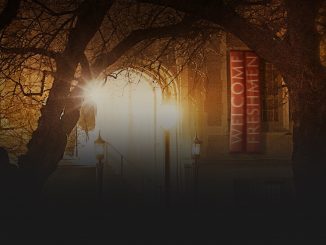
Religious extremism is taking a toll on the Catholic community in Mozambique. Churches have been razed and there are communities where parishioners live displaced and deserted as a result of the ongoing armed conflict in the country.
The fight over natural resources in northern Mozambique has been identified as one of the causes of the growing conflict as armed groups affiliated with the Islamic State have been launching attacks in villages and communities.
Government security forces have been unable to regain control of areas dominated by the armed groups. This has left communities and residents vulnerable. There are currently growing concerns over the safety of residents in the affected region.
Apart from providing relief to victims affected by the armed conflict, the Catholic Church in the country has been using its resources to highlight the losses and cost while urging the global community not to neglect the country but to intervene and find lasting solutions to the conflicts.
Last year, Luiz Fernando Lisboa, Bishop of Pemba, Mozambican Diocese in the province of Cabo Delgado made a passionate appeal and called on world leaders and nations, including the European Union and Portugal (which colonized Mozambique), to intervene and restore peace in the affected regions.
“Portugal would do well to launch a debate within the European Union concerning the use of resources in the world: how are we currently dealing with the situation?” said Bishop Lisboa, “What kind of new colonialism are we practicing in relation to the resources that exist in Africa and other poorer places in the world?”
He specifically called on the European Union to do a lot “in terms of humanitarian aid” and must act to discover “the causes of this war, in order to go to the root of the problem.”
He adds that economic motivations are one of the origins of conflicts, stating that if religious extremism constitutes “an important element, it is not the main one”, since “wars break out where there are many natural resources.”
Since October 2017, Islamist fighters have raided villages and towns in the region, forcing nearly 700,000 to flee their homes. But the number has sharply increased with about two million people currently affected.
Although they launched their campaign in 2017, they had begun mobilizing a decade earlier as disgruntled youths starting to practice a different type of Islam, drinking alcohol and entering mosques dressed in shorts and shoes, according to the US-based Armed Conflict Location and Event Data (ACLED).
The UNHCR, the UN Refugee Agency, says it is scaling up its responses to help victims displaced by the conflict after recent attacks that left about 11,000 people displaced.
More than 11 of the 16 districts in the province have witnessed incessant attacks with a significant rise in the death toll.
Women and children have been mostly affected, with the UNHCR saying that about 80 percent of separated individuals are women and children with water sources, food, and medical supplies badly needed to respond to the needs of the victims.
Caritas Mozambique, the humanitarian arm of the Catholic Church, is intensifying its level of response in assisting victims of terrorist attacks in the Cabo Delgado province.
The organization said they are witnessing the arrival of dozens of displaced victims to their camps.
The attacks, as Lisboa has noted, have been devastating for the Church. A year ago, during Holy Week, insurgents attacked seven towns and villages in Cabo Delgado province, burning down a church on Good Friday, and killing 52 young people who refused to join the terrorist group.
“We think anything can happen at any time and we are scared and don’t know how it would affect us,” said Alphonso Jules, whose community was part of the displaced in the wake of the latest attacks. “Our places of worship have been destroyed but we want to live first before we can decide what next to do.”
Lisboa has been one of the few fierce voices in the country, raising awareness on the conflict and the plight of residents and criticizing the government for lack of sincerity and transparency in dealing with the conflicts.
But in February, Lisboa who has been bishop of Pemba since 2013, was transferred by Pope Francis to Brazil, where he is from originally, following growing criticism from the government for interfering in the ongoing conflict.
Lisboa is currently the archbishop of Cachoeiro do Itapemirim in Brazil’s southeast region.
Following the growing attacks, leaders from the Southern Africa Development Community [SADC] have resolved to respond as a way of addressing the violent extremist attacks in the country.
Security experts say presidents of Botswana, Malawi, Mozambique, South Africa, Tanzania and Zimbabwe might be responding by deploying security forces to help in resolving the prolonged bloody conflict.
The SADC has scheduled another meeting in Maputo on April 28 before a final decision is taken.
If you value the news and views Catholic World Report provides, please consider donating to support our efforts. Your contribution will help us continue to make CWR available to all readers worldwide for free, without a subscription. Thank you for your generosity!
Click here for more information on donating to CWR. Click here to sign up for our newsletter.







Thank you for this and other articles. I am glad to hear about parts of the world that other media outlets never mention. What is going on in Nigeria, Mozambique and other parts of the world is heartbreaking. How can ordinary people help?